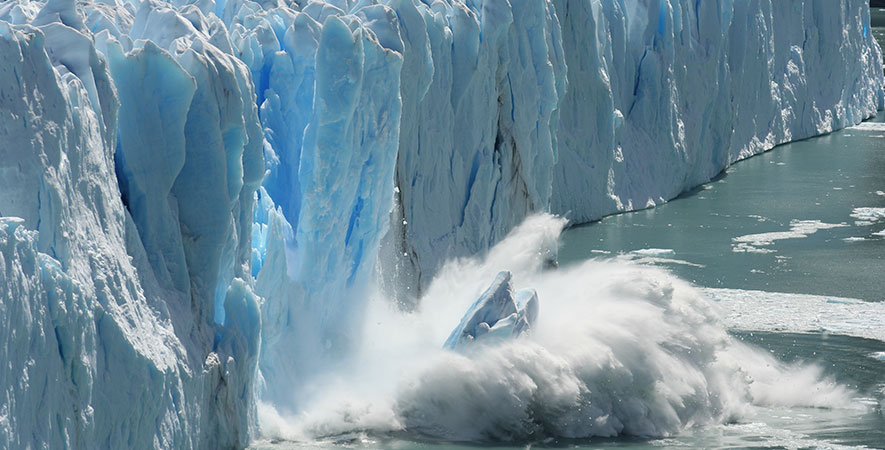A joint solicitation between the National Science Foundation Division of Polar Programs and the UK Natural Environment Research Council (NERC) seeks proposals for examining the future of Thwaites Glacier and its contribution to sea-level rise.
Full Proposal Deadline Date: 1 March 2017
Anticipated Award Funding Amount: $20,000,000 to $25,000,000
The Thwaites Glacier (TG) research program will support an observational and modeling campaign in the TG and neighboring Amundsen Sea region to understand the changes taking place and the processes driving these changes. Modeling activities should proceed hand-in-hand with data collection to help optimize measurement strategies, decipher external drivers, and, ultimately, deliver improved projections of sea-level rise. Improved decadal projections will be supported by coupled models that incorporate observations from the zone where TG comes into contact with the ocean, as well as contextual data on TG and its catchment. Longer-term projections will be constrained by answering the critical question “did TG survive the last interglacial?” Observational evidence would constrain the extent and timing of past deglaciation of TG. This would provide a key opportunity to test hypotheses regarding the instability of marine ice sheets.
Considerable uncertainty remains in projections of future ice loss from West Antarctica. Reducing this uncertainty is an international priority that was recently underscored by the Scientific Committee on Antarctic Research in its “Horizon Scan 2020” (SCAR, 2015). The recent U.S. National Academy of Sciences, Engineering, and Medicine report (A Strategic Vision for NSF Investments in Antarctic and Southern Ocean Research, 2015) places prediction of ice mass loss from the West Antarctic Ice Sheet (WAIS) as the top priority for Antarctic research, and singles out Thwaites Glacier as a “region of particular concern.”
Building on this community priority, and recognizing that such research is becoming an increasingly global endeavor with demands that exceed the capacities of any one nation, NSF and the UK Natural Environment Research Council (NERC) have developed this joint program with the objective to substantially improve both decadal and longer-term (century-to-multi-century) projections of ice loss and sea-level rise originating from Thwaites Glacier.
Since the 1990s, satellites have shown accelerating ice loss driven by ocean change in five neighboring glacier catchments, including Thwaites Glacier, that drain more than one third of the WAIS. The rate of ice loss there doubled in six years and now accounts for about 10 percent of global sea-level rise. The most rapid ice loss is currently from Pine Island Glacier, which has been the focus of the NERC iSTAR Programme and NSF-funded science. Recent studies indicate the greatest risk for future rapid sea-level rise now arises from Thwaites Glacier due to the large changes already underway, the potential contribution to sea-level rise, and the societally relevant timescales of decades to centuries over which major, irreversible changes are possible in the system.
The program will have a direct and significant impact on understanding the stability of marine ice sheets and specifically the West Antarctic Ice Sheet in the vicinity of Thwaites Glacier, and will contribute to the ice-sheet modeling community capability to simulate ice sheets and to reduce the uncertainties in sea-level projections. In addition, the program will contribute to improving risk assessments that coastal communities need for decisions about adaptation and long-range planning. To read the full proposal, click here.





